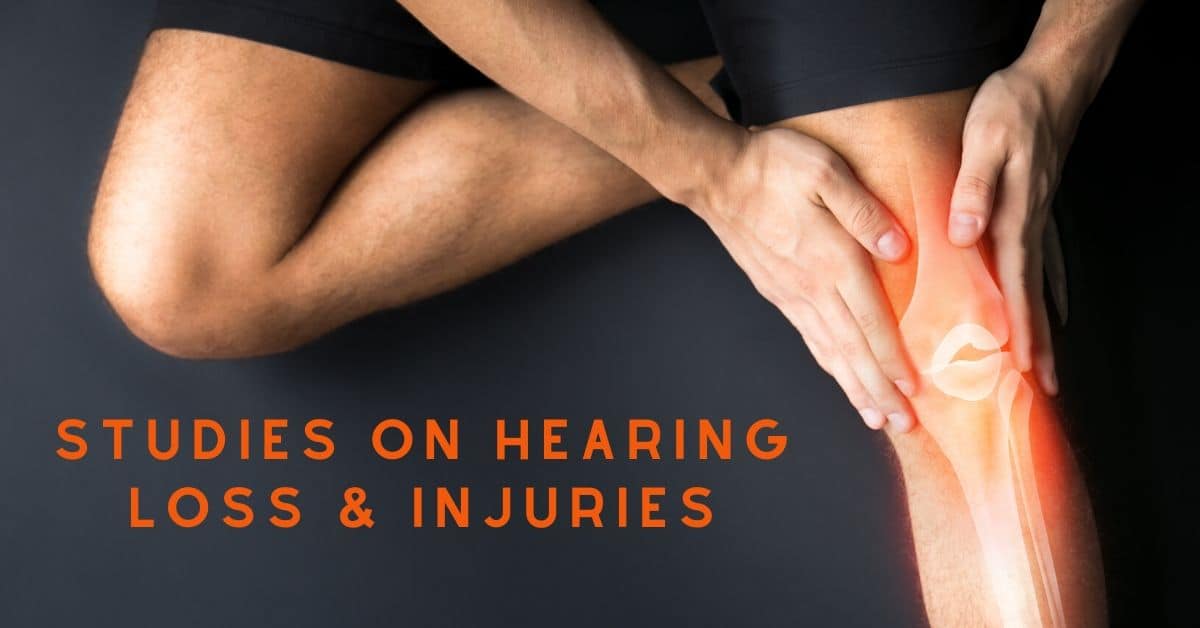
Hearing loss can be caused by any number of factors. Head and neck injuries are a common cause of hearing loss, and according to the CDC, an estimated 3 million traumatic brain injuries or concussions lead to emergency department visits and hospitalizations each year. Many of these injuries will cause a hearing loss. The highest number of brain injuries occur in 15- to 35-year-old males who are more prone to risk taking, as well as playing contact sports.
What is a Concussion?
A concussion is the most common type of traumatic brain injury (TBI). This mild brain injury is often caused by a fall, or a direct hit to the head. Car accidents and sports related injuries are the most common causes of TBIs and concussions. Even a very loud noise blast can create enough pressure to damage the brain. TBIs lead to contusions, or bruising of the brain, and may even cause hemorrhaging or bleeding in the brain.
The Symptoms of a Concussion or TBI
Athletes are at a high risk of concussions, and the long-term effects of concussions are being carefully researched. A study published in the British Journal of Sports Medicine found that many people with sports related concussions have persistent symptoms. Traumatic brain injuries and concussions can have a wide range of possible brain damage and long-term effects. This includes motor function impairments and difficulty walking or talking. Other symptoms include sleep disturbances such as insomnia, and cognitive impairments such as memory loss, difficulty thinking critically and impaired judgement. These effects can be temporary, but may become permanent depending on the location and severity of the injury.
More severe TBI can lead to personality changes or behavioral changes such as outbursts of anger, impairs coping skills, and impulse control problems. A 2017 study found that elite athletes who face a TBI suffer from higher rates of depression and anxiety long after they have recovered from the injury.
Hearing Loss & Injuries
A mild traumatic brain injury or concussion isn’t life threatening, but it can lead to some life-changing symptoms such as irreversible hearing loss. This hearing loss may be caused by damage to the inner ear or middle ear from a ruptured eardrum, or a dislocation of the small bones in the middle ear. The auditory pathway or the central auditory system in the brain may also be damaged, leading to permanent hearing loss.
These injuries can lead to problems with balance or vertigo, as well as coordination difficulties or nausea. Approximately 40 – 60% of those with a TBI will struggle with dizziness, and headaches are a common complaint. Concussions often lead to hearing loss and tinnitus, and it becomes difficult following conversations, particularly in places with distracting background noise. Hearing loss from a concussion makes it more difficult to localize sounds or recognize where a sound is coming from. Many people report being sensitive to loud noises, and having distorted hearing immediately after a concussion.
Asking for Support
Recovering from a concussion can be a long process, so ask for support from your loved ones. If you’ve experienced hearing loss, ask your friends and family to turn down any background music, and reduce distractions. Ask that only one person speaks at a time, so you’ll be able to focus your attention in one place. Finally, ask that your friends and family speak at a normal volume, but speak as clearly as possible as you recover from the concussion.
Treating Hearing Loss
If you or someone you love recently suffered a TBI such as a concussion, treating hearing loss is an important component of the recovery process. A hearing health specialist will start with a comprehensive hearing test that shows the extent of the hearing loss. With this information, you’ll be able to choose a hearing aid that will match your lifestyle and hearing needs, and help you hear as you recover from the injury.
A hearing health specialist guides you through the process of relearning how to hear with hearing devices, and modern hearing aids will allow you to focus on conversations and clearly hear what’s being said, even in places with background noise. Many devices can even be linked to your smartphone using Bluetooth technology for the best in sound quality and convenience.
